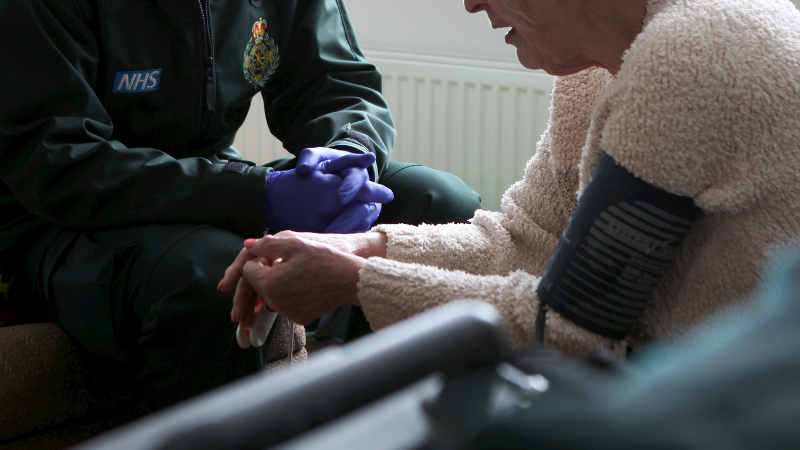
Having high blood pressure, or hypertension, is a main factor causing heart attacks and strokes. Over one third of adults in England have high blood pressure, but 3 in 10 of those don’t know they have it. Being aware of having high blood pressure is a first step to prevent heart attacks and strokes as this can be lowered to healthy levels and therefore reduce the risk.
Using secure email data transfer of electronic patient records, the initial pilot involved analysing data of NWAS patients who had a high blood pressure reading during clinical observations on scene. Where the patient was cared for in the community without the need to be taken to hospital for immediate follow up care, blood pressure patient data was shared with the local primary care network so that patients could be called for review to confirm or discard hypertension by their GP, and a treatment plan initiated if necessary.
From 71 records shared, the pilot helped to identify 14 new cases of hypertension, borderline cases or cases needing management review. After analysing these results, the data suggests that by sharing high blood pressure readings with primary care networks across the region, around 500 new cases of hypertension could be diagnosed using just one month of data.
Work is now ongoing with integrated care boards and cardiovascular disease prevention groups, including GPs and community pharmacies across the region to scale up this pilot and allow the data to be shared with them in a secure, scalable, and manageable way.
Medical Director for NWAS, Chris Grant said: “This project really highlights how we’re using advancements, such as our electronic patient records, to work together with our partners within the NHS to make a real difference to the health of our patients.
“Learning from this pilot will help us to improve our data sharing processes and understand the potential of this in supporting prevention in other areas. Preliminary data analysis has also indicated hypertension rates were significantly higher in most deprived areas, so we’ll pay particular attention to whether this work can also support in reducing health inequalities.”
We are now working with health and local authority partners from North East and North Cumbria Integrated Care System, to explore ways of automatically sharing blood pressure data from all NWAS patients in North Cumbria who do not need to be taken to hospital for further treatment.
Chris continues: “By rolling out this initiative further, we hope to identify cases of hypertension in people who may otherwise not have known they had high blood pressure. However, where possible we encourage people to get their blood pressure checked out themselves regularly so that any risk factors can be managed.”
A blood pressure test is a simple way of checking if someone’s blood pressure is too high or too low. This can be carried out at a number of places, including at home – using a patient’s own digital blood pressure monitor, a local pharmacy and GP practice, at an NHS Health Check appointment (offered to adults in England aged 40-74), or even in some opticians and supermarkets.
Blood Pressure UK is raising awareness this Know Your Numbers! Week (between 4 – 11 September) of the importance of measuring your blood pressure and the risks around high blood pressure. Knowing your numbers means you can start making healthy lifestyle changes or start taking medicines if you need them to bring your blood pressure down to a healthy level.